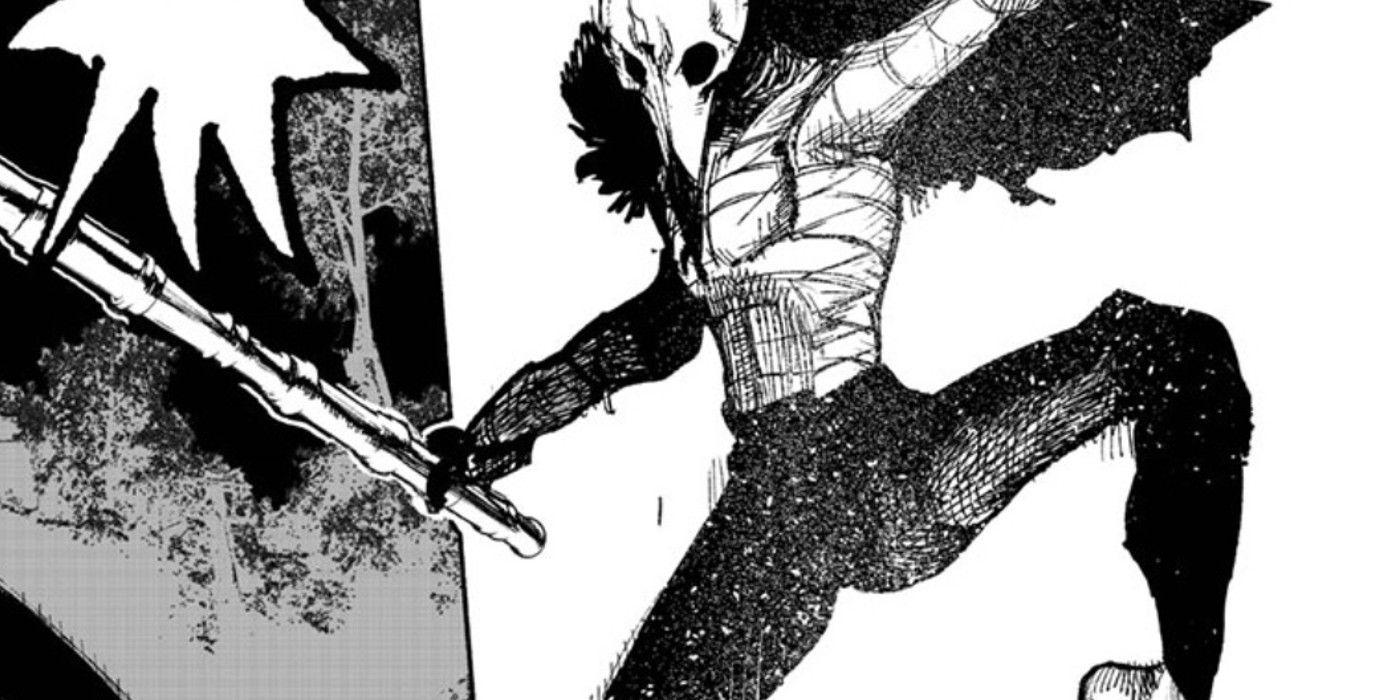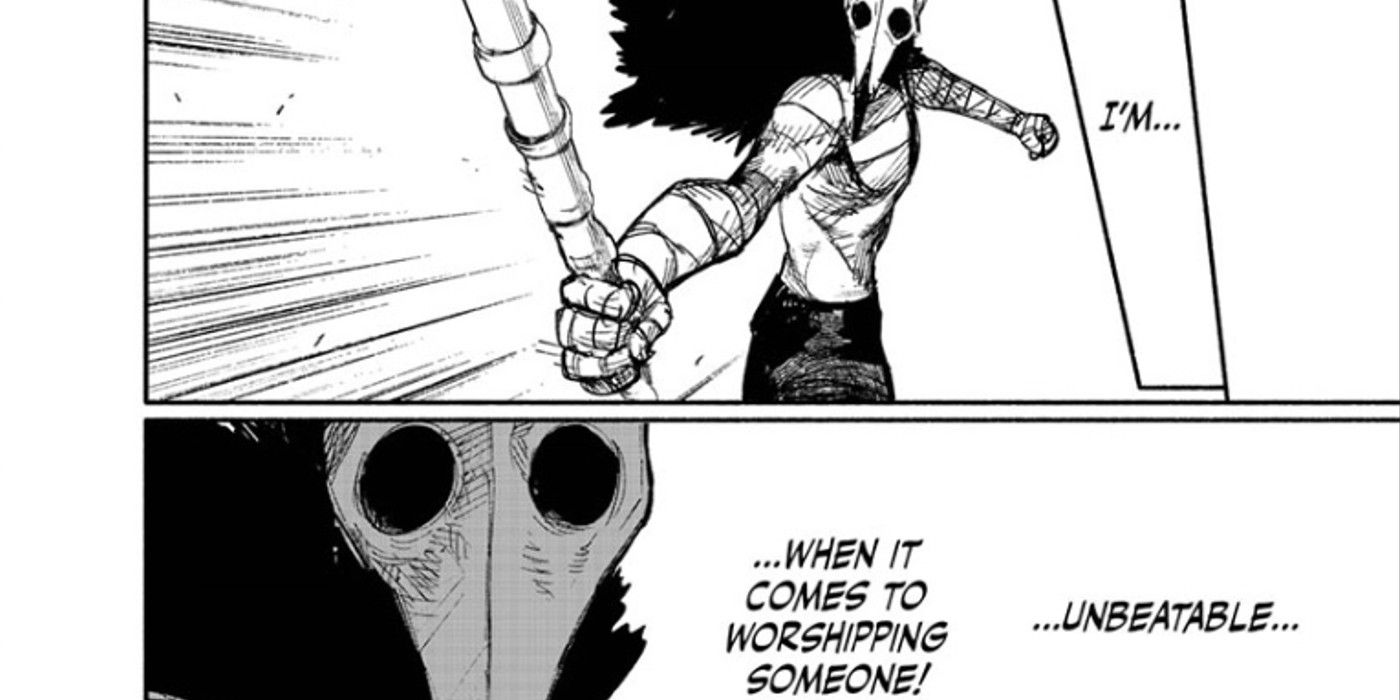Warning! Spoilers ahead for Choujin X chapter 14!
The mangaka of Tokyo Ghoul Sui Ishida just finally allowed his newest protagonist Tokio Kurohara to unlock the full potential of his Beastification form in his latest manga Choujin X, but, simultaneously, had him use his most embarrassing quality like a superpower.
Tokio originally became one of his world's superpowered beings known as Choujin through grisly means. Even though he could partially transform into a vulture-like creature, Tokio could never reach his true "Beastified" state until recently, making him essentially worthless for the longest time. But Tokio ruins what should have been a triumphant moment for himself in chapter 14 when he proclaims, "I'm unbeatable when it comes to worshiping someone!", right before proceeding to save the Sinker Choujin by using information he gained from obsessing over what it did as a normal human.
When taking earlier chapters of Choujin X into account, Tokio's self-assessment is quite accurate, but it's odd that he actually feels the need to share what is clearly an embarrassing talent with others as though he actually takes pride in it and during a moment that's clearly an inappropriate time. Early on, Sui Ishida makes it abundantly clear that Tokio idolizes his friend Azuma to an absurd degree, to the point where not only Tokio's classmates tease him over it, but even his own family. Choujin X also implied in the early chapters that Tokio's Beastification is based on the fact that his classmates called him a vulture because of how much he swarmed over and benefited from his friendship with Azuma who was much more popular than him and a superhero of sorts. Later Azuma even yells at Tokio to think for himself as opposed to coming to him for answers.
This strange quality is also directly correlated to Tokio's failure to identify his own dream unlike most shonen heroes who normally are quite aware of what they want. All he could think of was to support Azuma. His odd power of almost weaponizing his ability to worship others only further separates him from other protagonists in typical shonen manga. Many of them possess an inherent kindness that helps out other characters in heroic ways. For example, Naruto has a soft spot for underdogs or outcasts, which is why he easily befriends Gaara in Shippuden and later takes in Kawaki as his own son in Boruto. There's also Yuji Itadori's obsession with ensuring that others don't die alone in Jujutsu Kaisen, empowering him enough to prevent his friends from passing away by themselves. Interestingly, Tokio's odd quality is much like Ken Kaneki's eventual realization about himself at the end of Tokyo Ghoul. Although he never announces it to the world, Kaneki adopts a very deterministic understanding about how he should exist by concluding that all he can do in life is to choose the people he wants to love and to be chosen by those who wish to love him. Similar to Tokio who realizes that he is good at worshipping others, Kaneki eventually becomes proficient in accepting life as it is. Both of these mentalities aren't things that characters should want or be fine with embracing, and yet, these two heroes are.
Although mangaka Sui Ishida bestows his protagonist Tokio with the oddest quality in Choujin X, at least he's being consistent, seeing as his other hero Ken Kaneki has one just as peculiar in Tokyo Ghoul. The difference is that Tokio Kurohara doesn't need the entirety of a massive epic saga to learn this about himself.


